The clearance of the hambach forest seemed to be off the table, but the battle of the energy group RWE against the climate activists around the forest goes on. How serious Germany really mean it, with the Coal phase-out?
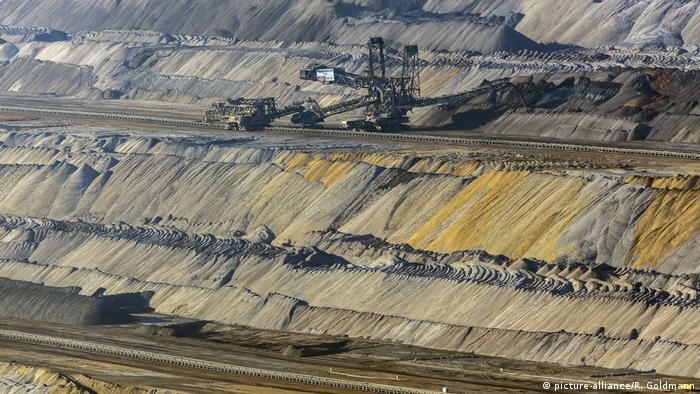
The Hambach open pit mine in the Rhenish lignite mining area
“Everything belongs to the test. The following principle applies: when in doubt, for safety.” It is the 14. In March 2011, three days after the nuclear meltdown in the Japanese nuclear power plant, as the German Chancellor Angela Merkel returns the to today perhaps the biggest turning point in your government’s policy is: the nuclear phase-out. By the end of 2022, so eleven years later, are switched off for the last three nuclear power plants, then the nuclear energy in Germany is history.
Angela Merkel has this gut decision at the time, with a lot of encouragement. Critics complain, however, even today, their seemingly rushed policy, without looking at all consequences. Eight years later, Germany and the Chancellor are facing in energy policy decision-making with a similar scope: How long Germany relies on coal-fired power plants?
Coal Commission recommends phase-out by 2038
The coal Commission – with representatives from industry, business, and environmental organizations – has recommended in January to generate up to 2038 no more electricity from coal. In the next 20 years, Germany will shut down all of its lignite and hard coal – fired power plants. The only way Germany can achieve its climate objectives, where it lags far behind. Five months later, the political output has changed position, however.
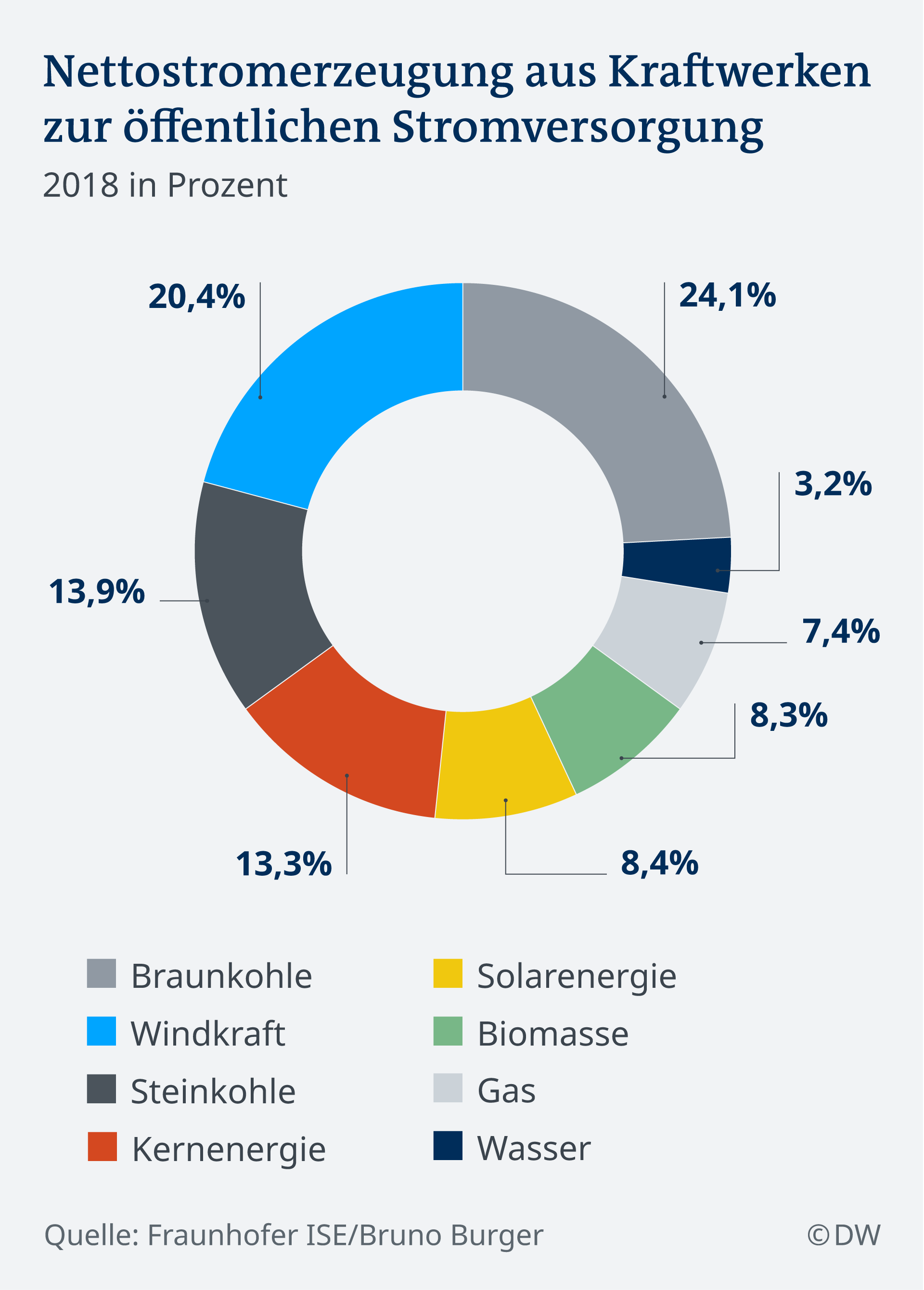
The Greens have dominated with the topic of climate protection in the European elections, the protests of the young “Fridays For Future”movement are getting louder and louder. Opinion polls show that environmental protection has for the German is currently the highest priority. The claim of many, especially of young people: Germany must sooner get out of the coal.
Climate policy of the Federal government good to very poor
“Germany has a lot of lingered too long, and too long at the coal held,” says Kemfert, energy economist Claudia. She is demanding a rapid rethink: “What is not understood by provider and policy, is that the time window of action closes with, and is irrevocable. A ‘More so’ we can afford only a maximum of seven years.” Adherence to the brown coal prevent the turnaround in energy policy.
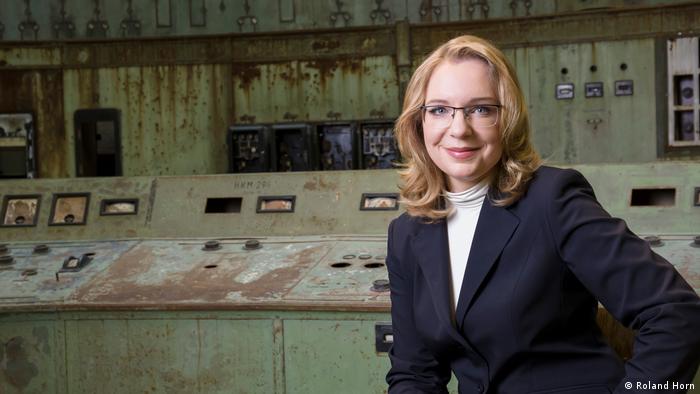
Claudia Kemfert from the German Institute for economic research: By coal exit, the lights don’t go out
Kemfert is head of the Department of energy, transport and environment at the German Institute for economic research in Berlin. She pleads opted for a faster exit strategy from Coal. For the Expansion of renewable energies would be the Federal government, the Note 2, well, give: “But not 1, because the Expansion has slowed massively in recent years. And for the non-existent carbon, a 5 exit.” A 5 stands for poor.
The German economy is massively suffering under the exit strategy from Coal, such as coal advocates calculate that makes Claudia Kemfert does not apply: “The Coal industry has no great significance for the German economy, unlike other areas such as the automotive sector.” The structural change would be accompanied also financially. Her appeal: “A smart exit strategy from Coal creates economic opportunities, because in the future markets, investing and the economy from unnecessary environmental costs, and brownfield sites will be exempt.”
What happens if the Wind is not blowing and the sun is not shining?
Thilo Schaefer, environmental expert at the German Institute for Economics in Cologne. He can understand the argument well: “I think the demand is understandable, now in Germany, the coal-fired power plants to be turned off because in this way, solid emissions are quickly reduced could be.” It is the coal’s exit is also no longer the ‘Whether‘ but the ‘How‘ and ‘when’.
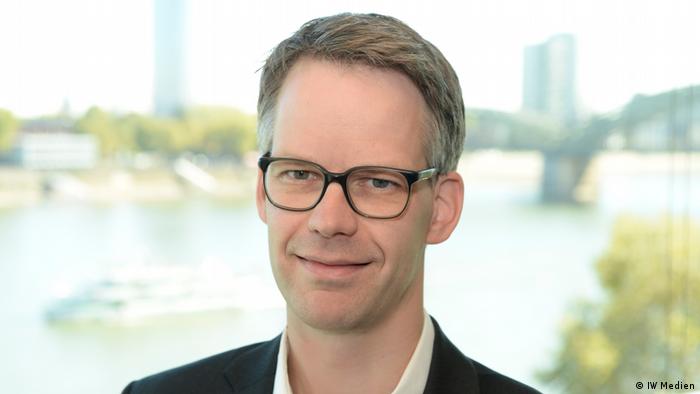
Environmental expert Thilo Schaefer: “To little to talk about, like a future without coal power is supposed to work”
However, Schaefer warns against a rushed exit, and thus higher current, accompanied by prices: “I don’t see that we are now in the position to replace current on the days where Wind and sun are available in sufficient quantities.”
Because it had failed Germany, but in the past, to invest in electricity storage, see the reality on days when the Wind is not blowing and the sun is not shining, as in: “as of right now we import electricity from our neighbouring countries: We get nuclear power from France and Belgium, and coal power from Poland. That doesn’t help then, indeed, our national carbon footprint, but overall climate, of course.”
European Action asked
Germany must, therefore, be European instead of national, calls for the environmental expert: “greenhouse emissions are global. We need to think bigger!” Schaefer’s other receivables: less bureaucracy in the approval procedures for wind energy, a faster Expansion of power lines from North to South, and the promotion of gas-fired power plants as a bridge technology.
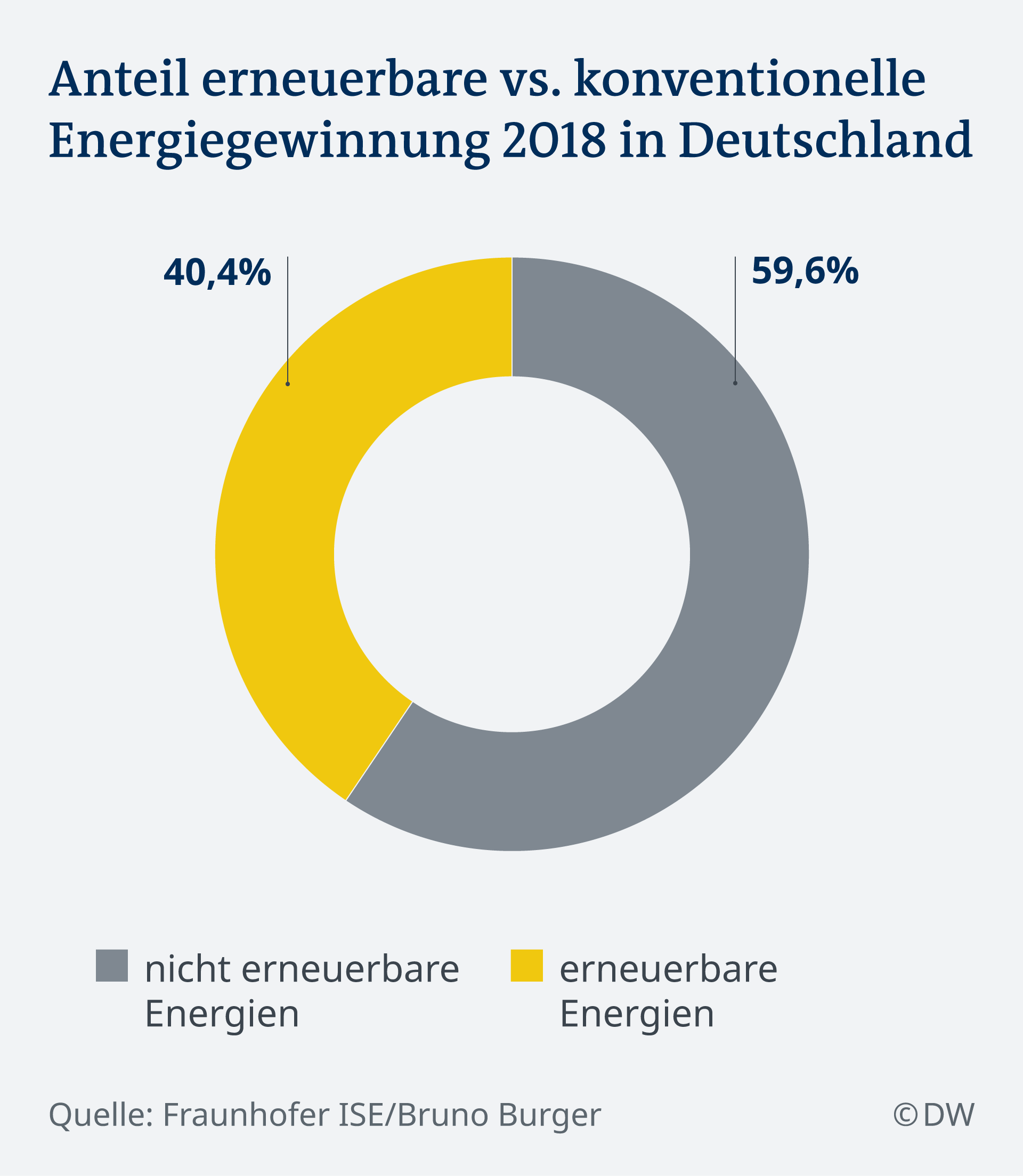
But also a rethinking of the citizens here should be: “When it is quite specifically about where the next Wind turbine or ‘will I be affected by a power line directly?’, then it suddenly looks at the commitment to climate protection is quite different.”
In fact, there are many Germans there is a great discrepancy between the desire for more climate protection on the one hand, and the Action on the other side: The least to refrain from traveling on the flight, eat less meat, or put on a bike instead of in the car.
Germany threatens to lose the connection
This will be live by the policy, criticized by Carl-Friedrich Schleußner, scientists at the Berlin Thinktank “Climate Analytics”: “Political behavior in Germany is just highly inconsistent. Between the ambitions that we have to fulfil our obligations to the Paris climate protection agreement, and what we actually do are worlds apart.”
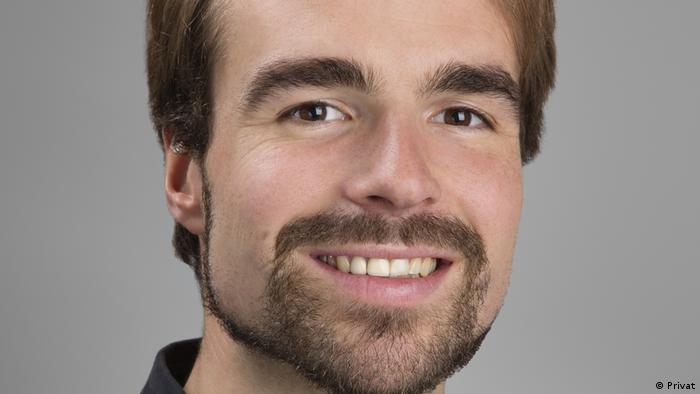
Carl-Friedrich Schleußner: “lignite is not a technology of the future, but pure conservation”
The environmental expert criticized the “vermanagte energy transition” and missed, especially to focus on renewable energies. “We were once the world leader in solar power generation, we have abandoned.” In the case of wind energy, a similar development, the threat now: “Due to the increasing difficulty to build, in particular, Offshore wind turbines, there are just a broke shaft at the operators. If we lose with this technology, the port, the other.”
The recommendation of the coal Commission, until 2038, the last coal-fired power plant shut down, was therefore half-hearted: “This is a Signal according to the Motto: We have it not in such a hurry, and we mean it with the Paris climate deal is not so really serious.” The example of great Britain, the fold by 2025 from the coal, show that it is also faster, says Schleußner: “Germany would be with the speed with which other countries in the energy transition progress, today, somewhere else entirely.”
What RWE power?
For energy companies such as RWE now, the question arises: What to do in the hambach forest? The group has placed on coal and very little on renewable energy. The removal was approved by the group first to 2040 (2016 by the then red-green Federal state government), in October 2018, the upper administrative court of Münster has imposed a stop a temporary Grubbing-up. After the coal Commission deemed the preservation of the hambach forest as “desirable”, said RWE at the request of the state government, to cases, to the spring of 2020, no trees. And then? More excavators, because it is now economically? Or finally the grubbing-up shelve?
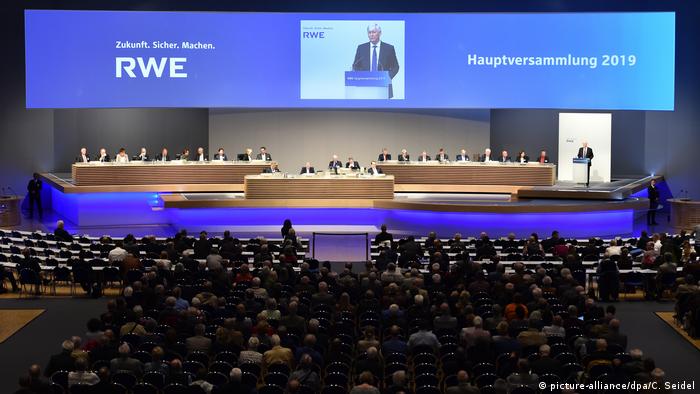
Rolf Martin Schmitz, chief Executive officer of RWE, speaks at the annual General meeting on may 3.May 2019 in Essen
Carl-Friedrich Schleußner from the Berlin-based think tank, “Climate Analytics”, says: “As the head of a company that is for profit, I can understand the grubbing-up perhaps, but as a social actor, to make a significant contribution to the energy turnaround, that is irresponsible. They have overslept the energy companies as well as other big German companies are simply over many years and slow it down.”
Thilo Schaefer from the Institute of the German economy in Cologne refers to the fact that companies such as RWE to earn their money mainly with the large power plant reactors: “So you need to generate, so to speak, space the game, to build new business models. I must go as the boss of such a company is a two-pronged approach: try to earn as much money as possible with the conventional technology, and at the same time new business models”.
Claudia Kemfert, head of the Department of energy, transport and environment at the German Institute for economic research in Berlin, advises the Executive of RWE, to instead invest more in renewable energy: “in particular, but I would try everything to regain this lost trust, and the young Generation to involve, instead of to intimidate – these are the customers of tomorrow!”

